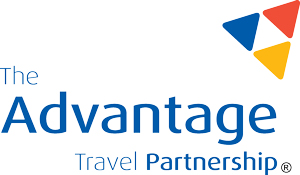One industry. Many sectors.
- 11 Nov 2022
- Julia Lo Bue-Said
This week I attended the IATA Wings of Change conference in Istanbul; an opportunity for Advantage to broaden its visibility across aviation, government, and regulators. The breath of European carriers and delegates from across Europe was impressive and I learnt a great deal at this well-staged event.
During a session involving the Turkish Ministers and IATA Chair, Mehmet Nane, I found it particularly interesting hearing about the support that Turkey received from its government during the pandemic. Their aviation sector was able to avoid making any redundancies, which not only enabled them to retain all the skills and experience in the sector, but propelled Turkey to making a rapid post-covid recovery and achieving 2019 volumes by the second quarter of 2022.
It's not often you hear of a country building an airport in one year, but Turkey managed two! So much is the need for connectivity across this vast country, relying on train travel when it can take 24 hours from east to west, isn’t a practical option. There are many social and political decisions that you start to consider with this, but the reality is, connectivity is vital for communities, global trading, jobs, tourism and bringing people together.
I also found it interesting that the Minister of Turkey made the point that ‘Luggage handlers are the most important roles in aviation ecosystem’. Probably now something we all understand so much better – and that these roles are intrinsic to making the ecosystem work seamlessly.
At the event we were reminded that in May 2020 the industry witnessed a 95% drop in air traffic, and that the entire aviation sector, together with their governments, had to make so many tough decisions in order to survive. IATA’s CEO Willie Walsh was pretty bullish in his approach when he was asked whether the aviation industry had failed the customer during the pandemic. His response: “Heathrow and a number of other airports continue to provide poor customer service. Elements of the industry have failed but not all.” Walsh went on to talk about how some countries did provide adequate government support, but not all governments had done enough to support aviation.
Looking ahead, the general view at the conference was that with high inflation across the globe and challenges in demand, household income would continue to be squeezed. From a local market perspective this will benefit Turkey as a popular market for leisure travel, as it has established itself well as a value-for-money destination. And, as we all know, next year consumers are sure to choose affordability and value for money.
We also know that there will be demand for next year, but the industry continues to be plagued with managing business-as-usual issues and the continued hangover from Covid. With all these challenges to deal with at once, business owners and leaders are sure to feel daunted, but I think we will agree that these challenges are much easier to deal with than 95% downturn in traffic!
One of the key topics of discussion was sustainability and how the industry meets its 2050 obligations. A pathway to net zero. On top of the business-as-usual costs, we learned that the sustainability implementation cost to net zero is €2 trillion. The costs need to be both financial and environmentally sustainable, and industry will have no choice but to reflect these increased costs back to the customer.
I think we’ve all heard of the need to improve the supply of Sustainable Aviation Fuel (SAF), a rare commodity now adays as demand far outstrips supply. I spoke to members of the European counsel who were quick to tell me there is only one company in the whole world making SAF from waste. Finding new ways of producing SAF is a priority for many countries with the USA leading the way. However, this is supported by government policy and incentives to attract the capital required by investors.
The UK Government has already commissioned a number of development sites in the UK but it’s some time from being operational.
The conclusion on SAF; overwhelming recognition by industry that something needs doing, but wide scale availability is needed as well as multiple pathways for production needed to turn into business opportunity.
It’s quite clear to me from attending this conference, and from feedback from Advantage members over the past few months, that the pathway to delivering long term sustainable solutions is something we are all going to have to be part of. Across the industry ecosystem we all have a part to play on this journey and that end touch point with clients and travellers is critical if the ambitions to net zero are to be achieved.
Regardless of whether we think the consumer will ultimately pay, corporates are already someway ahead in their commitment to managing their travel policies to take into account their sustainability goals and many of our members are already supporting the needs of their business travel customers in this regard.
I’m not convinced when traveling for leisure that for the mainstream consumer sustainable travel options are front of mind, but overtime this will change and we can all do our bit by starting to educate our supply chain and our people, and I want us to be part of the solution and debate, and not for it to be thrust upon us.


